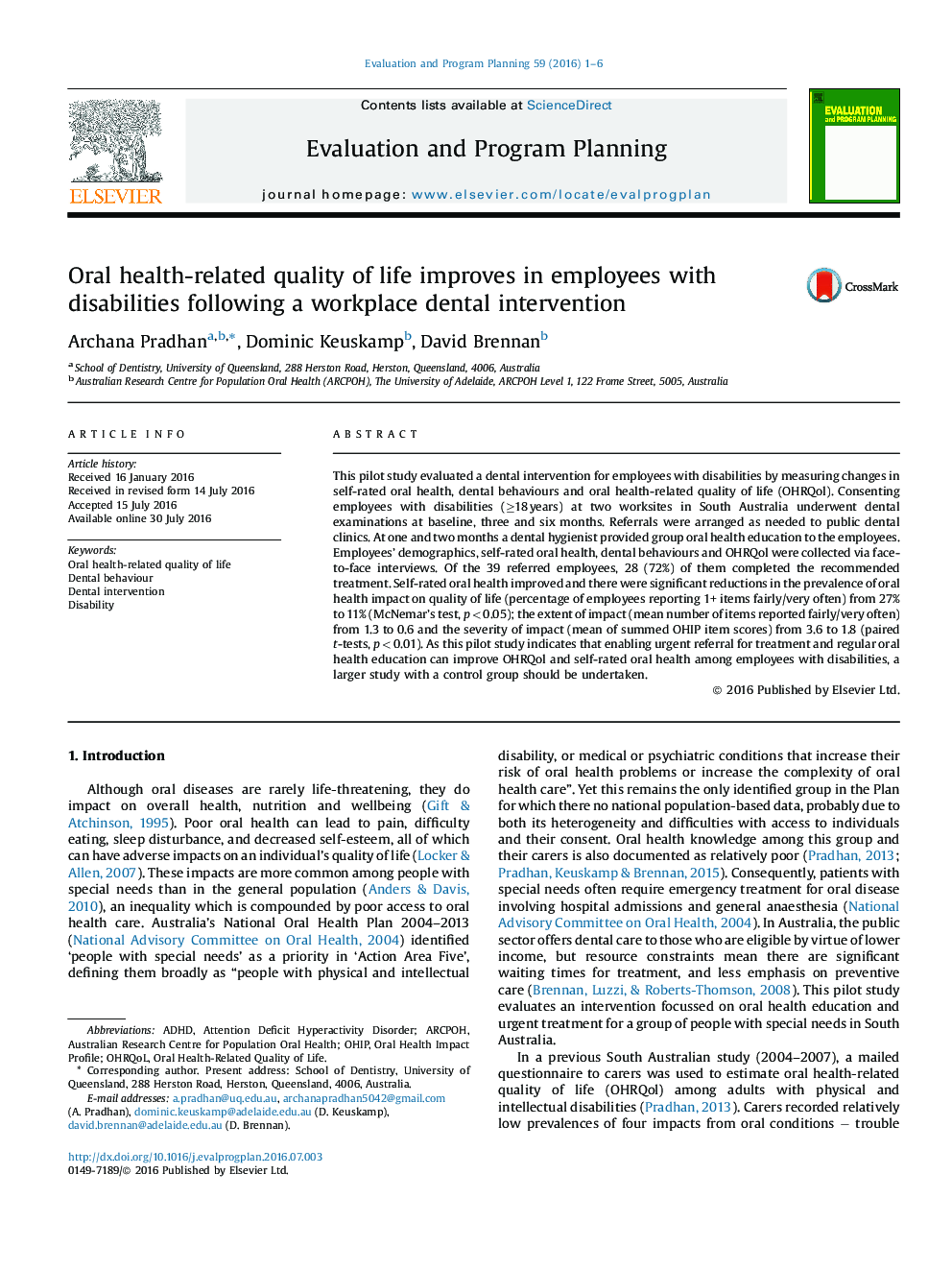| Article ID | Journal | Published Year | Pages | File Type |
|---|---|---|---|---|
| 494423 | Evaluation and Program Planning | 2016 | 6 Pages |
•A workplace dental intervention was evaluated as a pilot study.•Changes evaluated were self-rated oral health, dental behaviours, and oral health-related quality of life (OHRQoL).•Self-rated oral health improved.•Prevalence, extent and severity of impacts on OHRQoL showed significant reductions.•Referral for treatment combined with dental education can be beneficial to employees.
This pilot study evaluated a dental intervention for employees with disabilities by measuring changes in self-rated oral health, dental behaviours and oral health-related quality of life (OHRQol). Consenting employees with disabilities (≥18 years) at two worksites in South Australia underwent dental examinations at baseline, three and six months. Referrals were arranged as needed to public dental clinics. At one and two months a dental hygienist provided group oral health education to the employees. Employees’ demographics, self-rated oral health, dental behaviours and OHRQol were collected via face-to-face interviews. Of the 39 referred employees, 28 (72%) of them completed the recommended treatment. Self-rated oral health improved and there were significant reductions in the prevalence of oral health impact on quality of life (percentage of employees reporting 1+ items fairly/very often) from 27% to 11% (McNemar’s test, p < 0.05); the extent of impact (mean number of items reported fairly/very often) from 1.3 to 0.6 and the severity of impact (mean of summed OHIP item scores) from 3.6 to 1.8 (paired t-tests, p < 0.01). As this pilot study indicates that enabling urgent referral for treatment and regular oral health education can improve OHRQol and self-rated oral health among employees with disabilities, a larger study with a control group should be undertaken.
